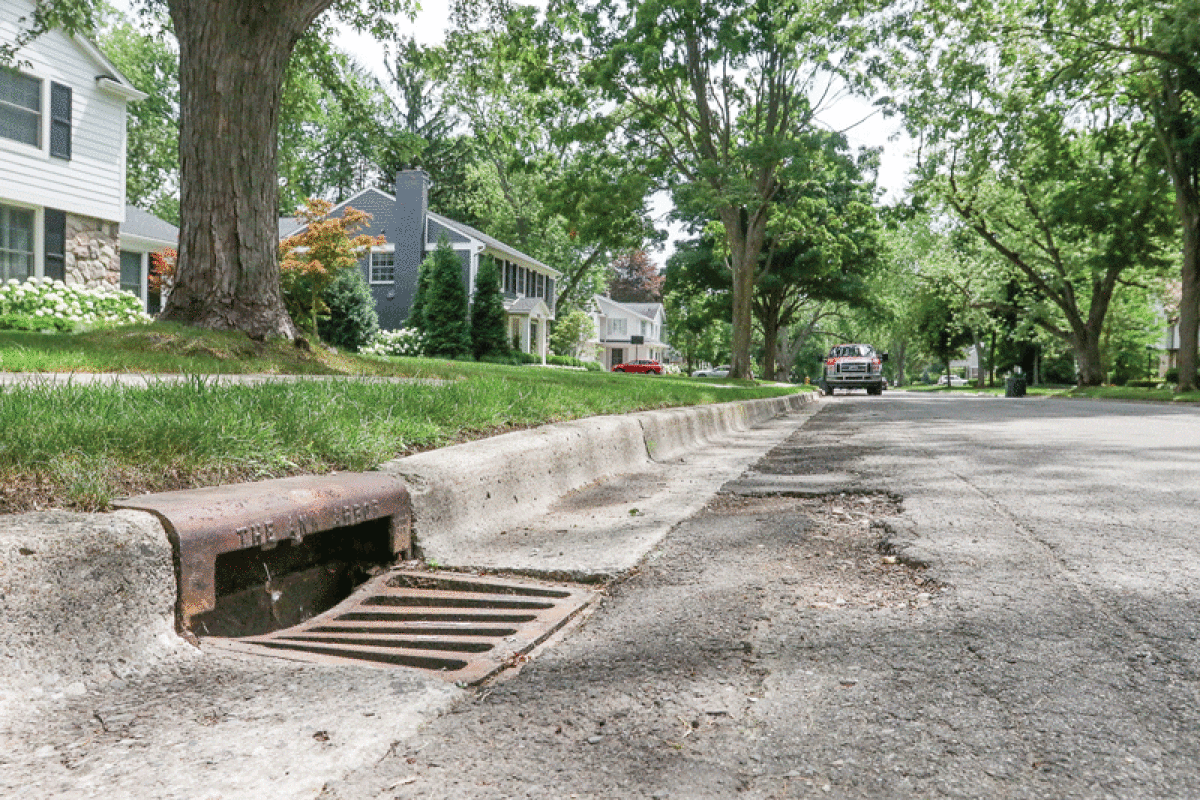BIRMINGHAM — During a recent Birmingham City Commission meeting, the commission passed a resolution directing the Engineering Department to proceed with the final design of the Westwood, Raynale and Oak Street project to include sewer and water improvements.
Additionally, the June 27 resolution approved a full cape seal treatment to be completed on all pavement surfaces disturbed by utility construction.
Commissioners who voted for the resolution to pass included Mayor Pro-Tem Pierre Boutros, Commissioner Clinton Baller, Commissioner Brad Host, Mayor Therese Longe and Commissioner Andrew Haig.
Commissioner Elaine McLain and Commissioner Katie Schafer voted against the resolution. They said they were in favor of a full road improvement project rather than a cape seal treatment.
“I appreciate the residents’ concerns over cost — that is always our concern. But, I also was elected to make good decisions for improving our city, and I think we have an opportunity here to make that good decision,” Schafer said during the meeting.
For an average-sized lot, the cost of the full improvement was estimated to be about $17,400, which could be paid over a 10-year span.
Cape seal will cost an average lot a total of about $2,500-$3,500.
“As this is an unimproved road, any costs associated with road repairs or improvements are assessed to the residents of the streets. The majority of Westwood residents were against a more costly improved road surface, such as concrete or asphalt,” Assistant City Engineer Scott Zielinski said in an email.
At the meeting, the City Commission was given a total of three options to pass.
Opinions varied greatly among the public and commission as some believed the sewer and water repairs were necessary, some believed a full road improvement was necessary in addition to the underground infrastructure repairs, and others thought the project should not continue at all.
Option A included a full reconstruction of the streets within the project area, instead of the cape seal treatment, which was chosen in option B.
All streets in this project area are currently considered unimproved streets.
According to the 2021 Pavement Surface Evaluation and Rating for road service conditions, Westwood and Raynale were “fair” and Oak was “poor.”
This project is the first city-initiated street improvement project since the Modified Street Improvement Policy was adopted in 2021. This modified policy allows for the city to initiate a street improvement project rather than relying on a citizen-led petition.
“The main benefit to the residents when the city initiates a street improvement project that, is coupled with the other infrastructure work, is that it is going to be the most economic way to repave and improve that street,” Consulting City Engineer Jim Surhigh said during the meeting.
There was high community participation at the meeting regarding this topic. Many different perspectives were shared at the meeting
Janelle Whipple-Boyce is a Birmingham resident. She said that while it is not fun to pay for these things, she does not think it is the city’s responsibility to pick up the tab.
“In my opinion, as someone who lives here, there are times where I will have to pay an assessment, and I don’t particularly like it, but I understand it is the right thing to do,” Whipple-Boyce said. “And I think that if you move forward and you choose option B, we are saying that even when we go ahead and approve the infrastructure of a street where it’s failing or soon to fail, we are keeping unimproved pavement, and that is our preference, and we are setting a precedent going forward by doing so.”
The final option proposed to the City Commission would have directed the Engineering Department to postpone further design of the project.
The project would have remained postponed until property owners in the project area presented a petition requesting the consideration of street improvements, or until emergency conditions arose necessitating action on the water or sewer utilities in the project area.
“I didn’t buy my house because of my street. But I surely didn’t buy my house with the idea that I was gonna have to pay for a new one (street). There was already one there, and there’s nothing wrong with our street,” resident Jerry Vanwyke said.
There were several residents who advocated for option C to pass.
The infrastructure in the area is approaching 100 years of life, according to the city, and this area has some of the poorest-performing fire hydrants. The hydrants are marked by firefighters as being able to produce less water than other hydrants in the city. This is an issue in other areas in the city as well.
“The water main improvements that are proposed here will significantly improve that situation, not just in this particular block, but also it will provide better circulation and flows for other nearby blocks and hydrants,” Surhigh said during his presentation at the City Commission meeting.
Commissioner Andrew Haig made a motion for option B. He clarified that while he thinks option B is the best option, he does not think it is the right option for every road.
“I think option B is the only option that we can do because the sub-surface requires attention. The subsurface is where the problem is, not the surface. The surface is good,” Haig said during the meeting.
The decision that the City Commission voted for will move forward with critical water and sewer repairs and provide the street with a cape seal treatment.
 Publication select ▼
Publication select ▼





















